Related Research Articles
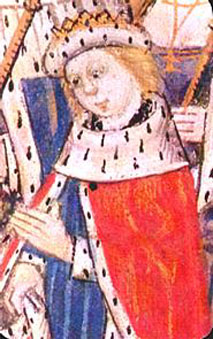
Edward V was King of England from 9 April to 25 June 1483. He succeeded his father, Edward IV, upon the latter's death. Edward V was never crowned, and his brief reign was dominated by the influence of his uncle and Lord Protector, the Duke of Gloucester, who deposed him to reign as King Richard III; this was confirmed by the Act entitled Titulus Regius, which denounced any further claims through his father's heirs.

Thomas Bourchier was a medieval English cardinal, Archbishop of Canterbury, and Lord Chancellor of England.

William of Wykeham was Bishop of Winchester and Chancellor of England. He founded New College, Oxford, and New College School in 1379, and founded Winchester College in 1382. He was also the clerk of works when much of Windsor Castle was built.

Thomas Rotherham, also known as Thomas (Scot) de Rotherham, was an English cleric and statesman. He served as bishop of several dioceses, most notably as Archbishop of York and, on two occasions as Lord Chancellor. He is considered a venerable figure in Rotherham, South Yorkshire, his town of birth.
Robert Stillington was an English cleric and administrator who was Bishop of Bath and Wells from 1465 and twice served as Lord Chancellor under King Edward IV. In 1483 he was instrumental in the accession of King Richard III, leading to later reprisals against him under King Henry VII.
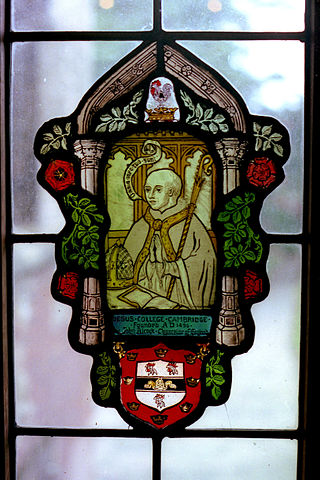
John Alcock was an English churchman, bishop and Lord Chancellor.
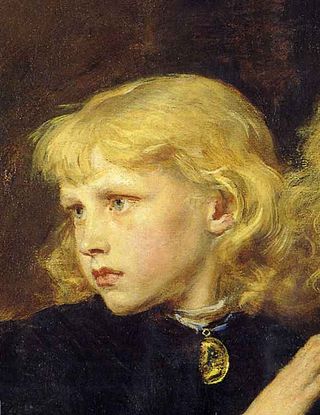
Richard of Shrewsbury, Duke of York, was the sixth child and second son of King Edward IV of England and Elizabeth Woodville, born in Shrewsbury. Richard and his older brother, who briefly reigned as King Edward V of England, mysteriously disappeared shortly after their uncle Richard III became king in 1483.

Edward of Middleham, Prince of Wales, was the son and heir apparent of King Richard III of England by his wife Anne Neville. He was Richard's only legitimate child and died aged seven or ten.

Edmund Dudley was an English administrator and a financial agent of King Henry VII. He served as a leading member of the Council Learned in the Law, Speaker of the House of Commons and President of the King's Council. After the accession of Henry VIII, he was imprisoned in the Tower of London and executed the next year on a treason charge. While waiting for his execution he wrote The Tree of Commonwealth. Edmund Dudley was also the grandfather of Robert Dudley, 1st Earl of Leicester, a favourite of Henry VIII's daughter, Elizabeth I.
The Dean of the Chapel Royal, in any kingdom, can be the title of an official charged with oversight of that kingdom's chapel royal, the ecclesiastical establishment which is part of the royal household and ministers to it.

Oliver King was a Bishop of Exeter and Bishop of Bath and Wells who restored Bath Abbey after 1500.

Peter Courtenay was Bishop of Exeter (1478–87) and Bishop of Winchester (1487-92), and also had a successful political career during the tumultuous years of the Wars of the Roses.
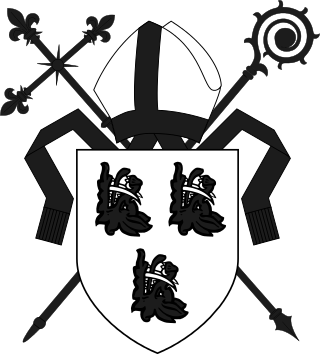
Lawrence Booth served as bishop of Durham and lord chancellor of England, before being appointed archbishop of York.
Thomas Langley was an English prelate who held high ecclesiastical and political offices in the early to mid-15th century. He was Dean of York, Bishop of Durham, twice Lord Chancellor of England to three kings, and a Pseudocardinal. In turn Keeper of the King's signet and Keeper of the Privy Seal before becoming de facto England's first Foreign Secretary. He was the second longest serving Chancellor of the Middle Ages.

Thomas Hatfield or Thomas de Hatfield was Bishop of Durham from 1345 to 1381 under King Edward III. He was one of the last warrior-bishops in England.
John Russell was an English Bishop of Rochester and bishop of Lincoln and Lord Chancellor.

Richard Mitford was an English cleric and administrator. He was bishop of Chichester from 17 November 1389, consecrated on 10 April 1390, and then bishop of Salisbury. He was translated to the see of Salisbury on 25 October 1395.

John Arundel was a medieval Bishop of Chichester.
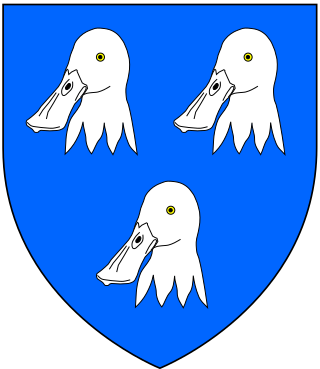
Edmund Lacey was a medieval Bishop of Hereford and Bishop of Exeter in England.
Events from the 1480s in England. This decade marks the beginning of the Tudor period.
References
- Fryde, E. B.; Greenway, D. E.; Porter, S.; Roy, I. (1996). Handbook of British Chronology (Third revised ed.). Cambridge: Cambridge University Press. ISBN 0-521-56350-X.
- Loades, David (1996): John Dudley, Duke of Northumberland 1504–1553, Oxford: Clarendon Press, ISBN 0-19-820193-1
- Ross, Charles (1981): Richard III, Berkeley: University of California Press, ISBN 978-0-520-05075-4